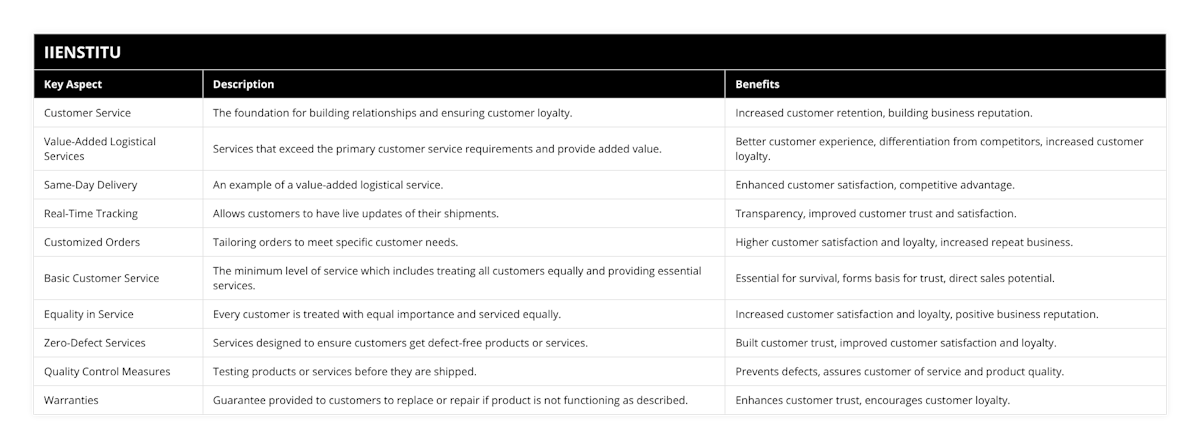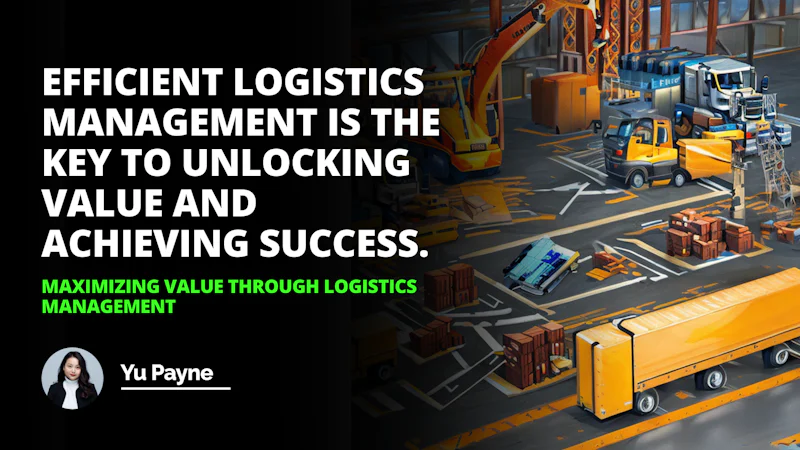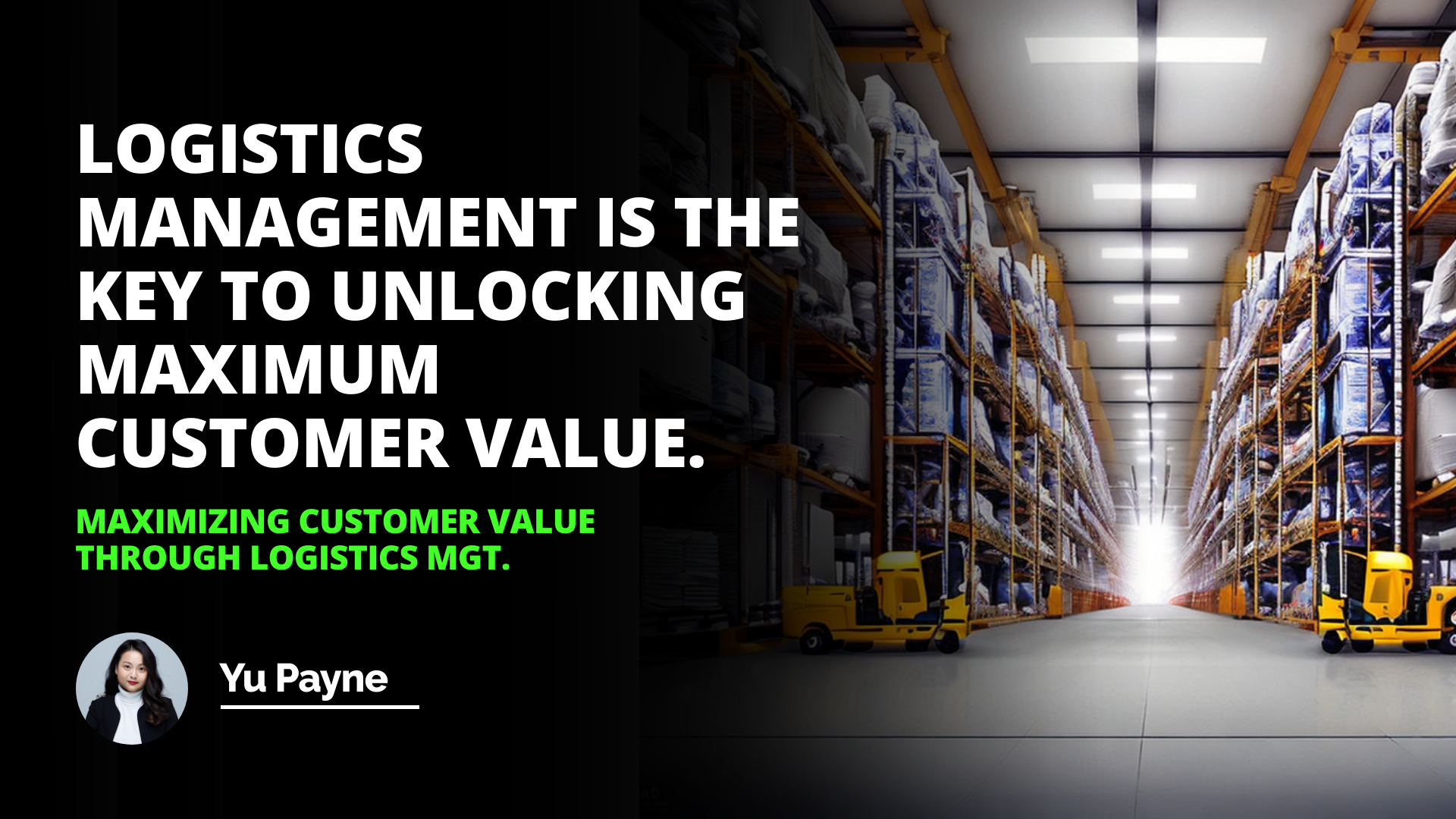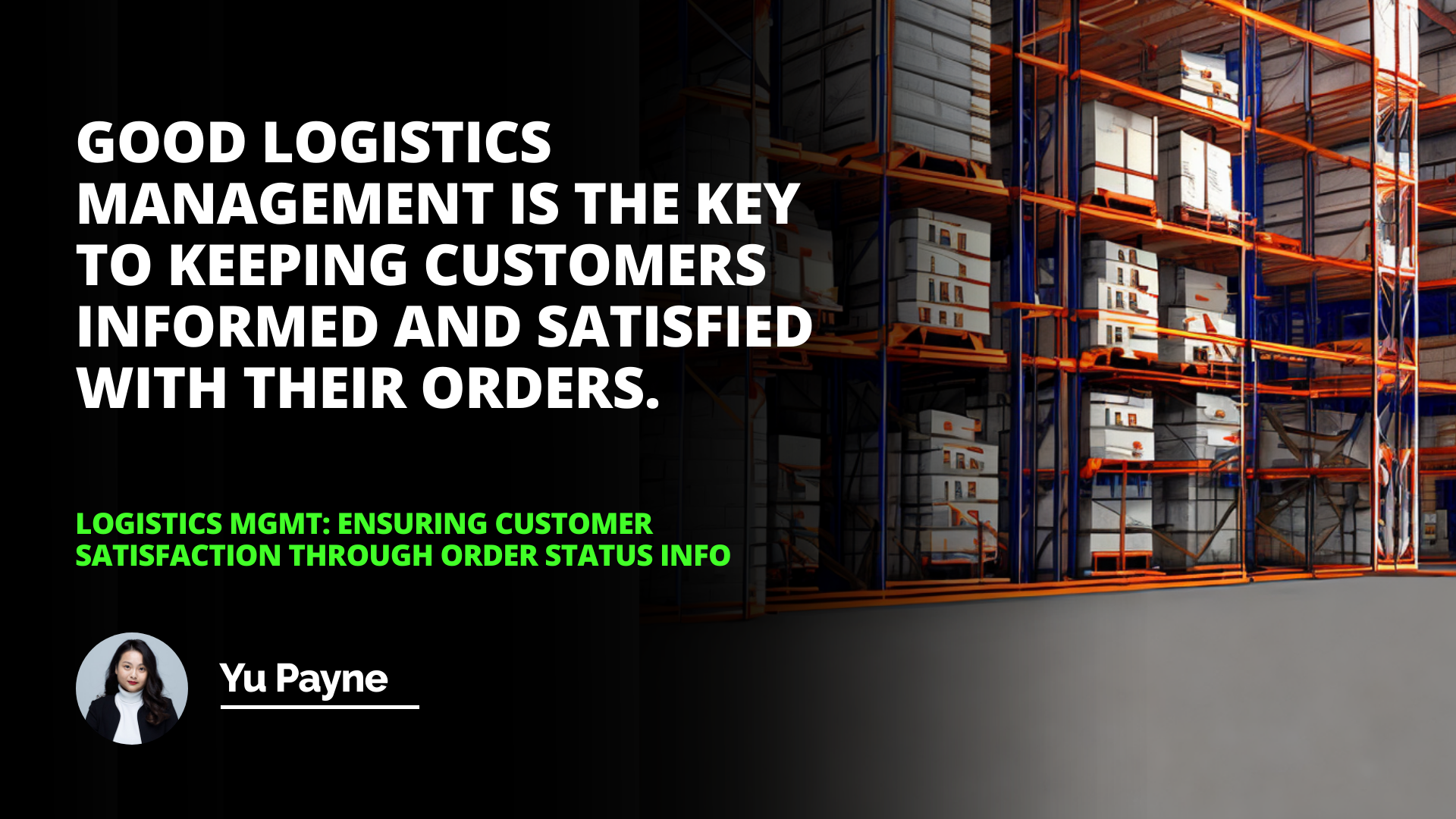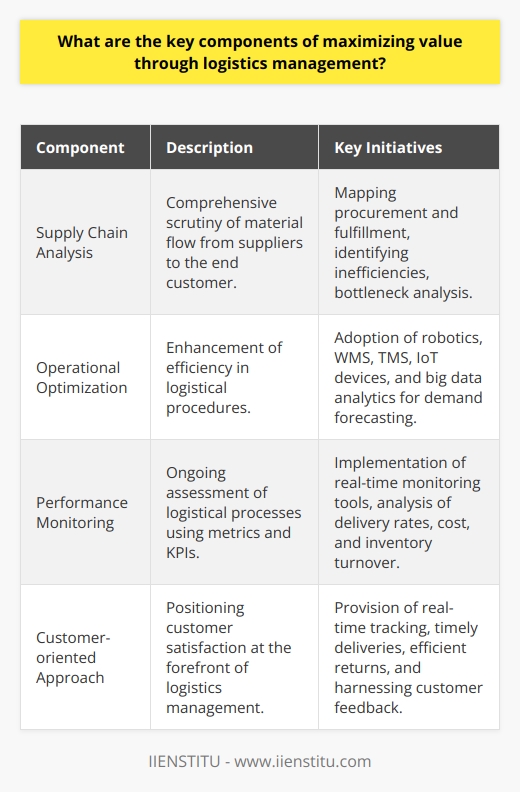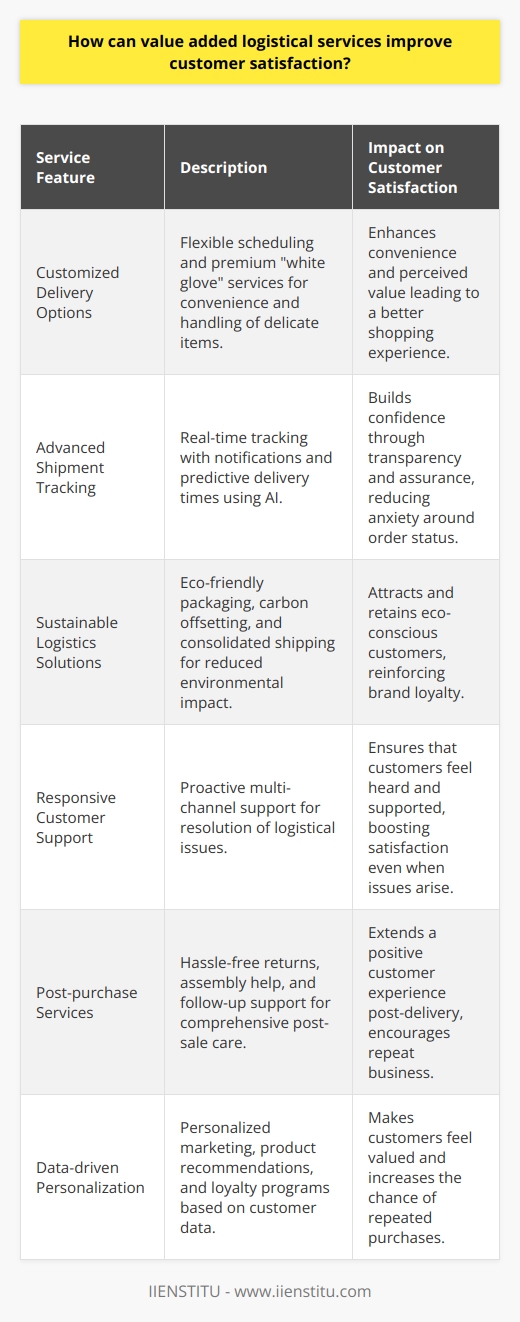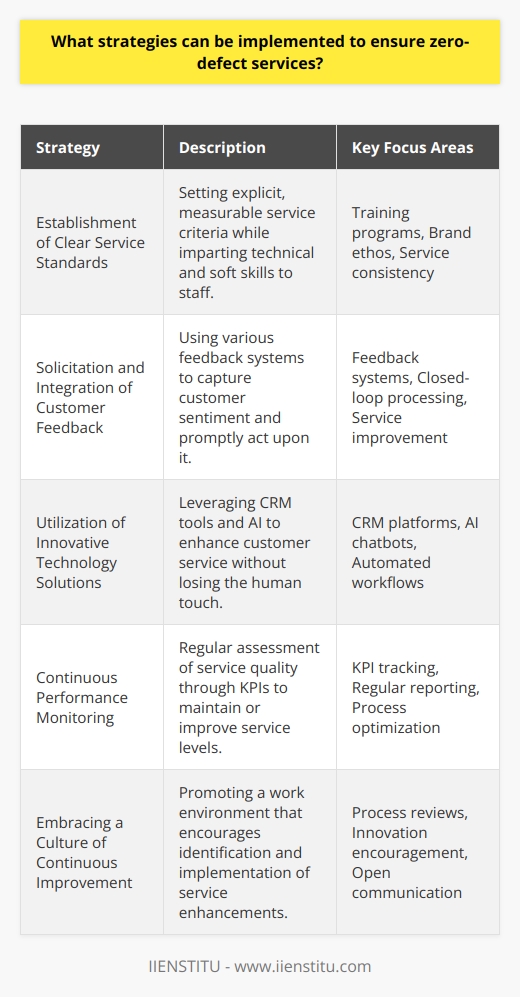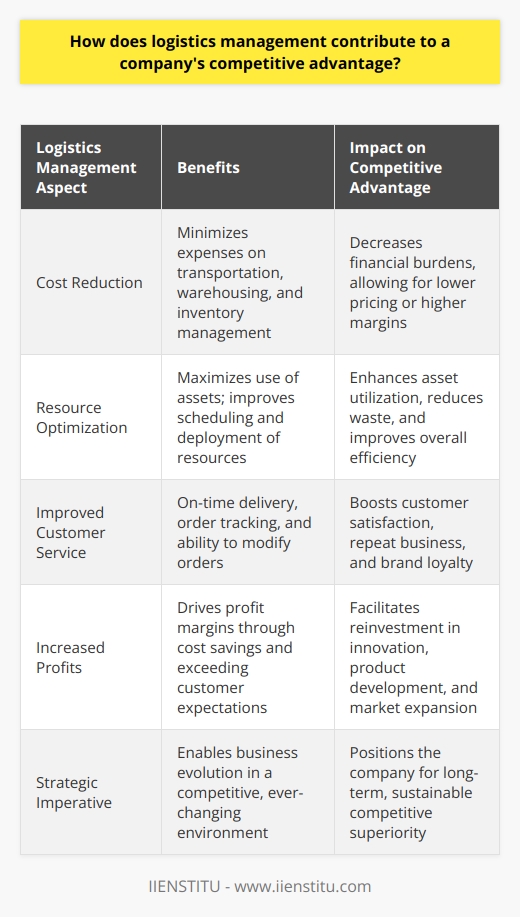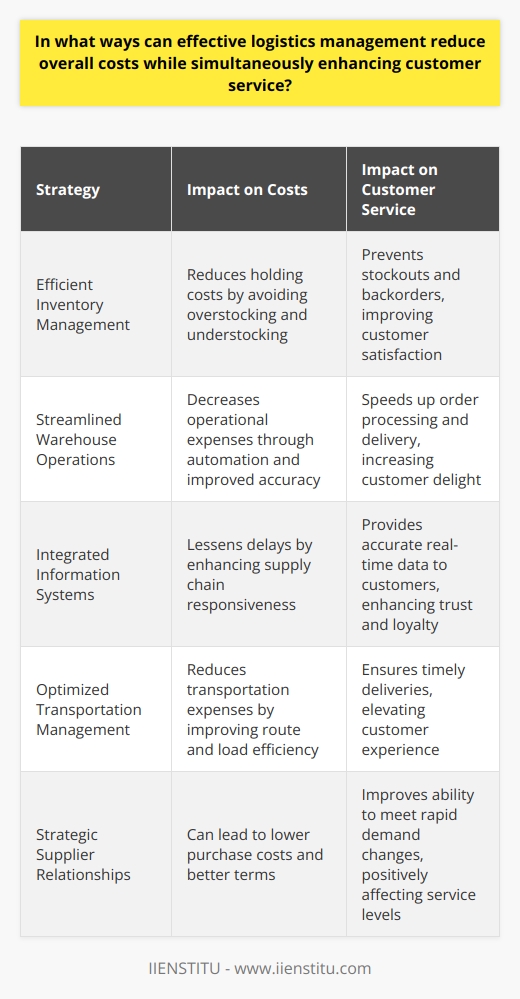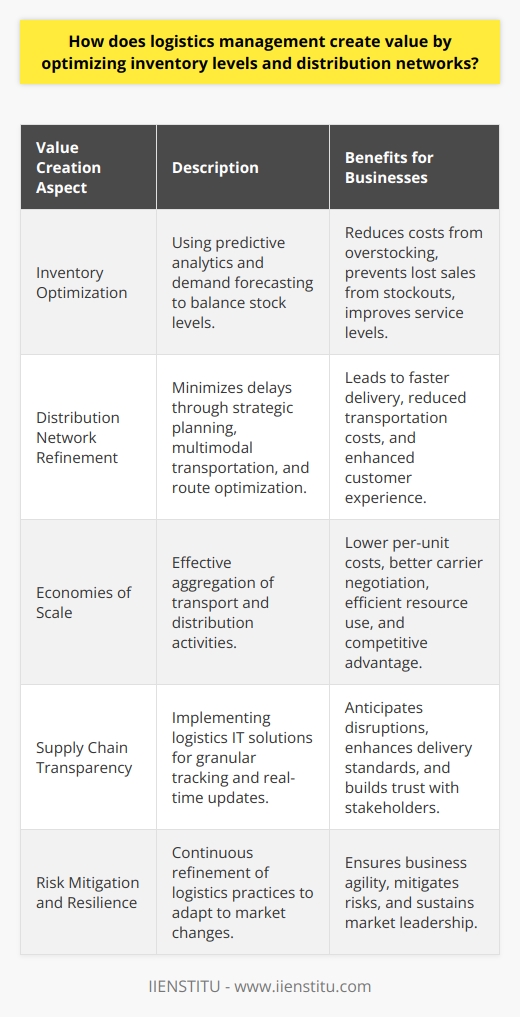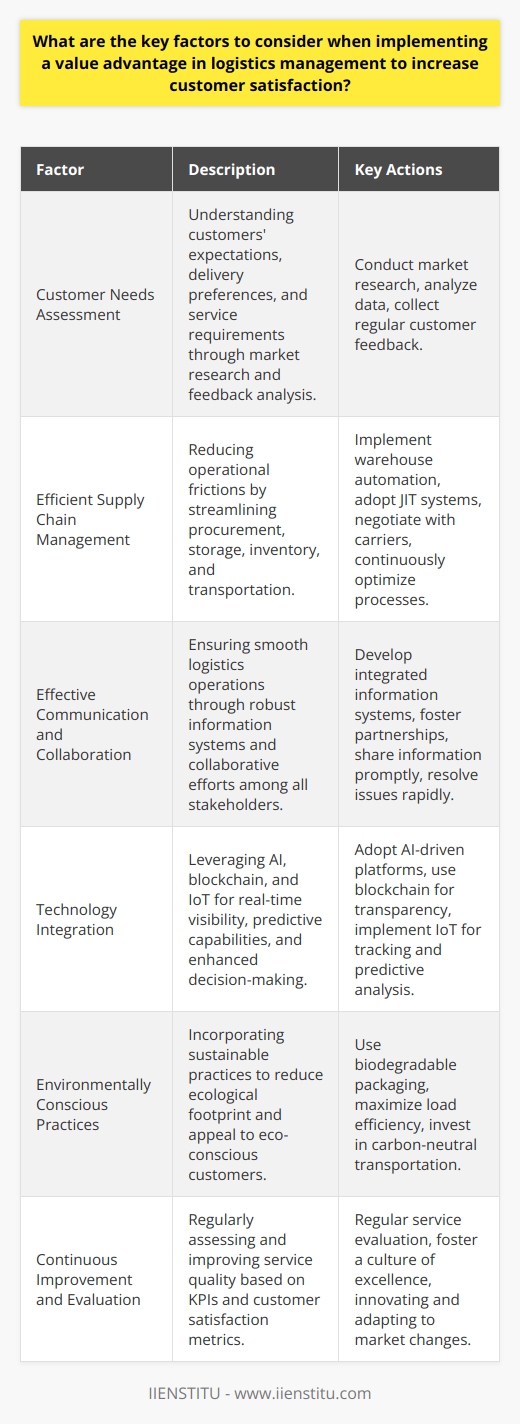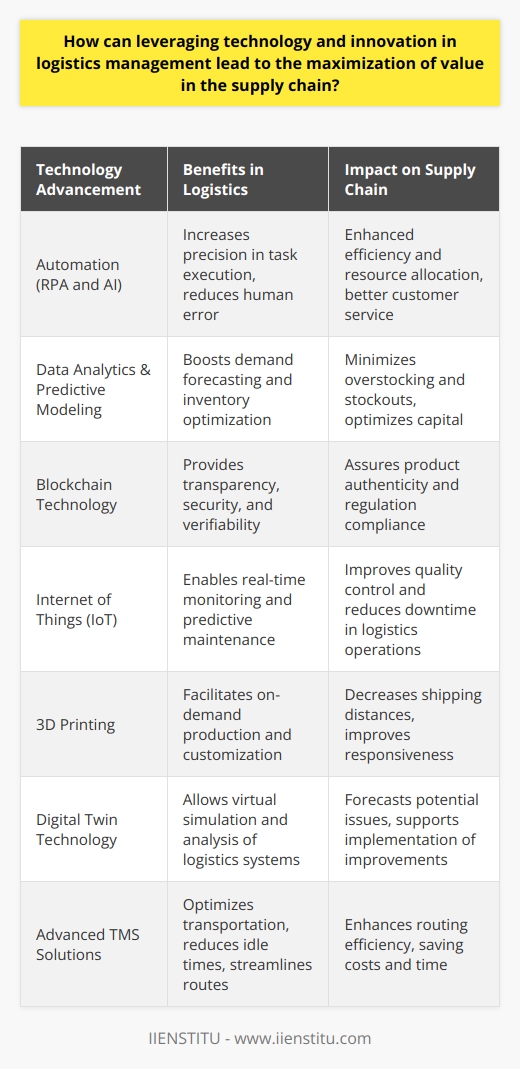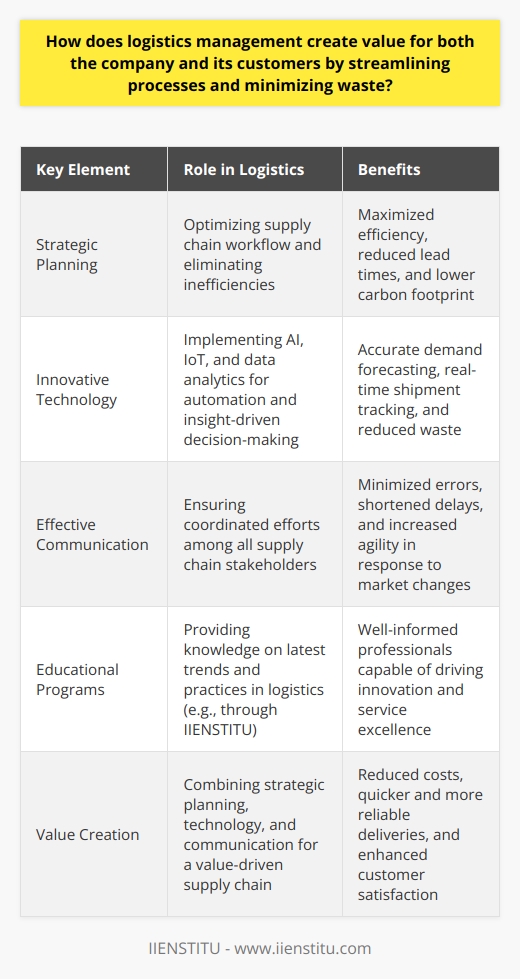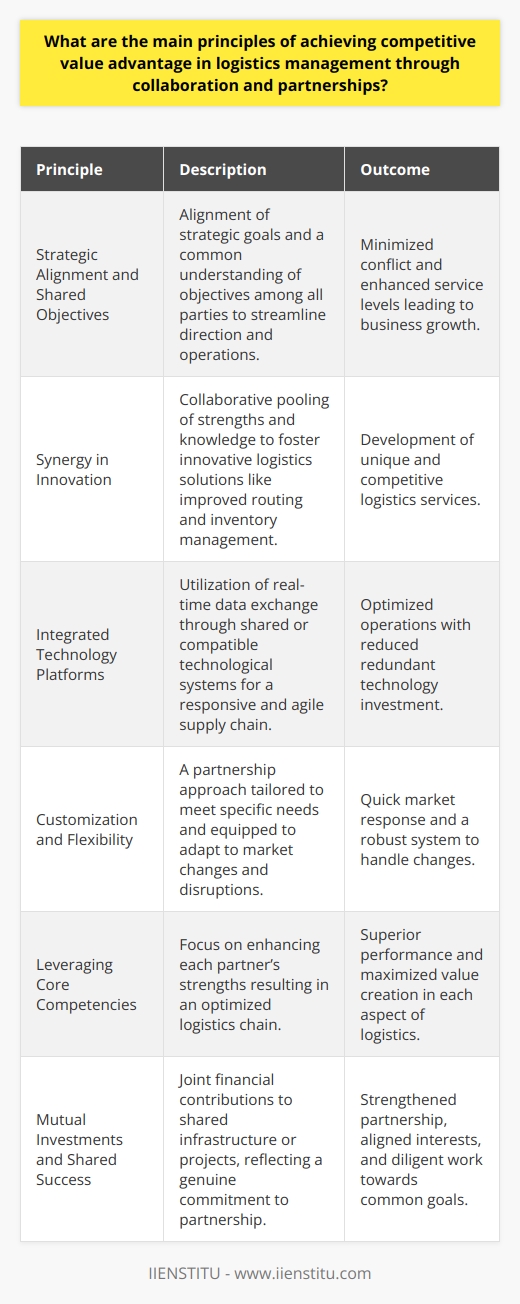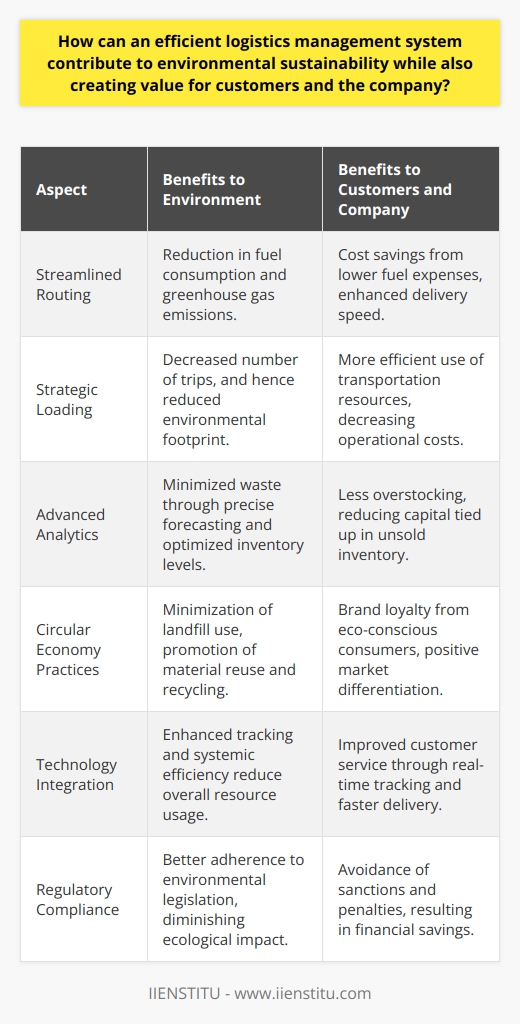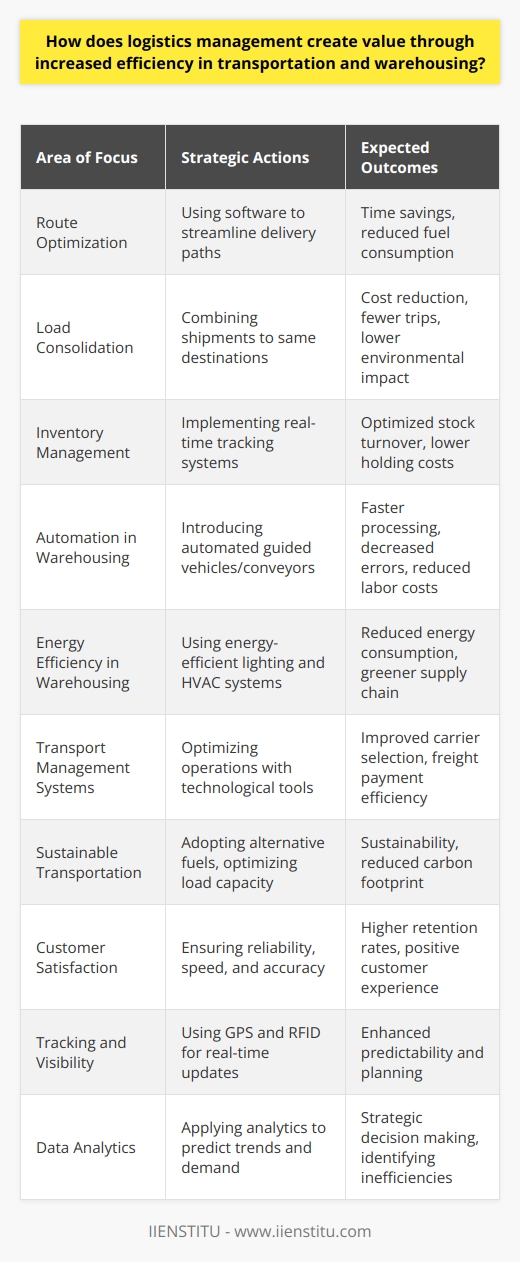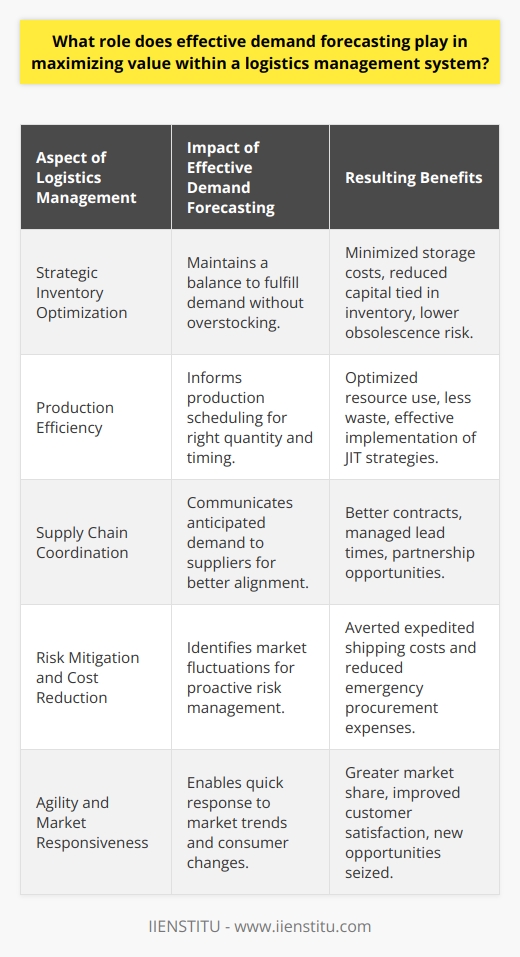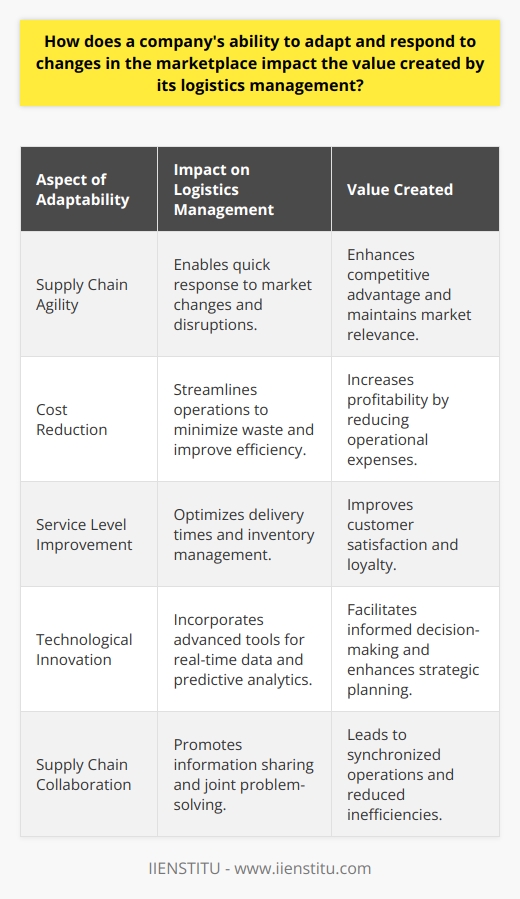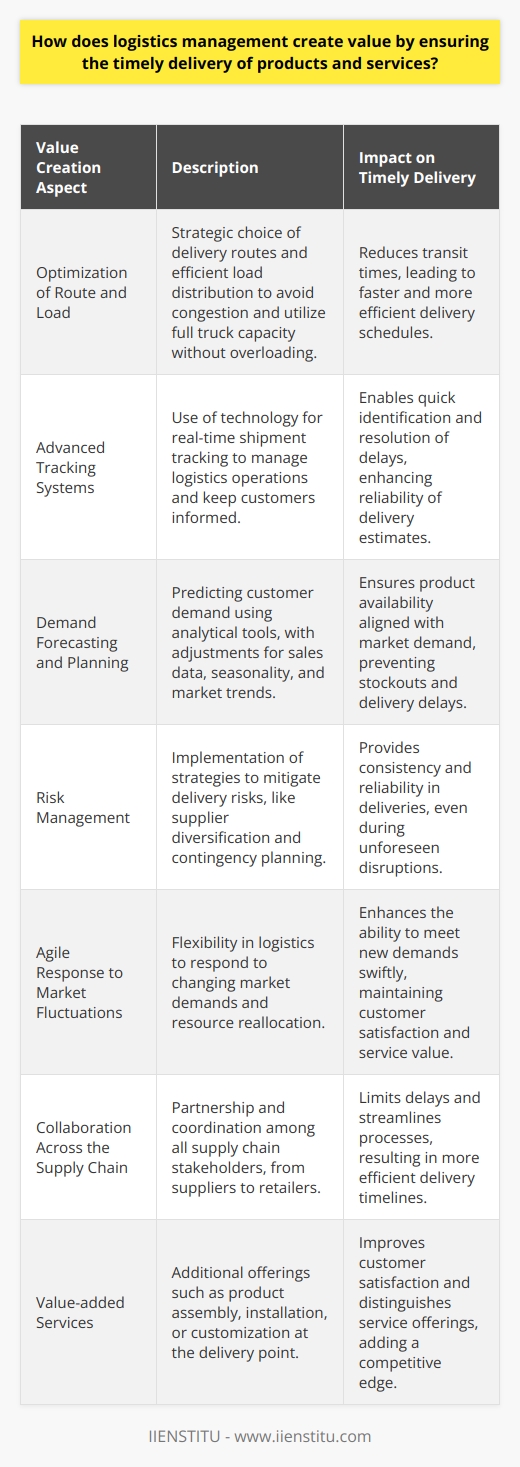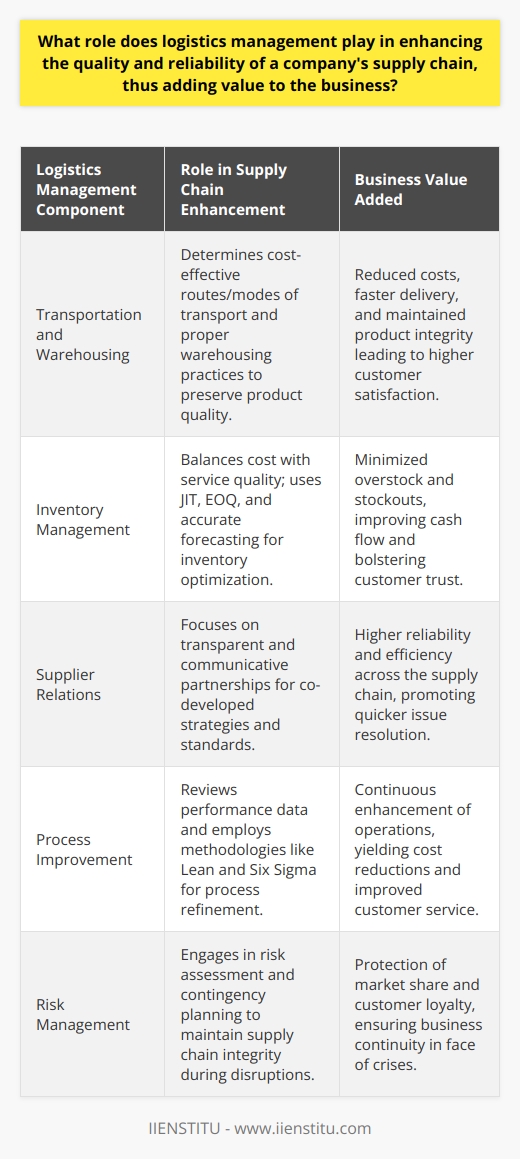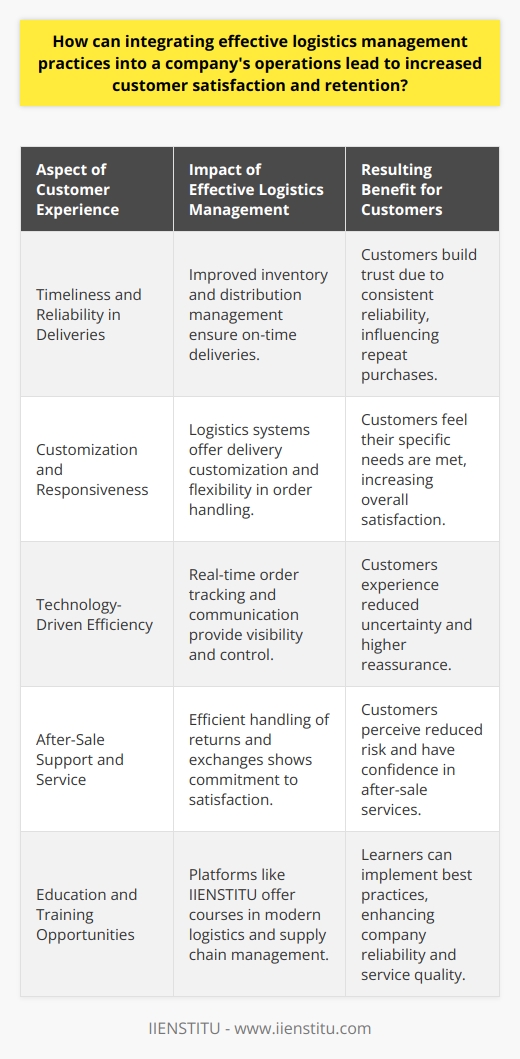This article discusses the importance of customer service for businesses and how providing value-added logistical services, basic customer service, and zero-defect services can help businesses to differentiate themselves from their competitors and build relationships with their customers. These services can help businesses to provide a better customer experience and build customer loyalty.
Introduction
Value Added Logistical Services
Basic Customer Service
Zero-Defect Services
Conclusion
Introduction: Customer service is an essential part of any business. It is the foundation on which businesses can build relationships with their customers and ensure their loyalty. Without proper customer service, a business cannot survive and grow.
Businesses need value-added logistical and basic customer service to provide the best customer service. Value-added logistical services go beyond basic customer service and provide customers with added value.
Optimizing Logistics Management İn Manufacturing To Reduce Costs And İmprove Efficiency
Long Tail Keyword: Optimize Logistics Management With Material Handling Techniques
Value Added Logistical Services
Value-added logistical services are services that exceed the primary customer service requirements. These services provide customers with added value, such as better delivery times, more efficient tracking of shipments, and improved customer service. These services can help businesses differentiate themselves from their competitors and build customer relationships.
For example, a business can provide value-added logistical services such as same-day delivery, tracking shipments in real-time, and customizing orders to meet specific customer needs. These services can help businesses to provide a better customer experience and build customer loyalty.
Basic Customer Service
Basic customer service is the minimum level of service a business must provide to survive. Basic customer service includes treating all customers equally and providing them with the essential services they need. This includes providing customers with the products they need, promptly responding to inquiries and complaints, and providing essential customer support.
Basic customer service is essential for any business to survive. Without it, customers will be unable to trust the business and will not be willing to purchase its products or services.
Zero-Defect Services
Zero-defect services are services that are designed to ensure that customers receive products or services that are free of defects. These services include rigorous quality control measures, such as testing products or services before they are shipped to customers and providing customers with warranties.
These services are essential for businesses to ensure that their customers are satisfied with the products or services they receive. Businesses can build customer trust and ensure customer loyalty by providing zero-defect services.
Conclusion: Value-added logistical services, basic customer service, and zero-defect services are essential for businesses to provide the best customer service. These services can help businesses differentiate themselves from their competitors and build customer relationships. Businesses can ensure customer loyalty and build trust with their customers by providing value-added logistical services, basic customer service, and zero-defect services.
Efficient logistics management is the key to unlocking value and achieving success.
Related Course: Logistics Training
